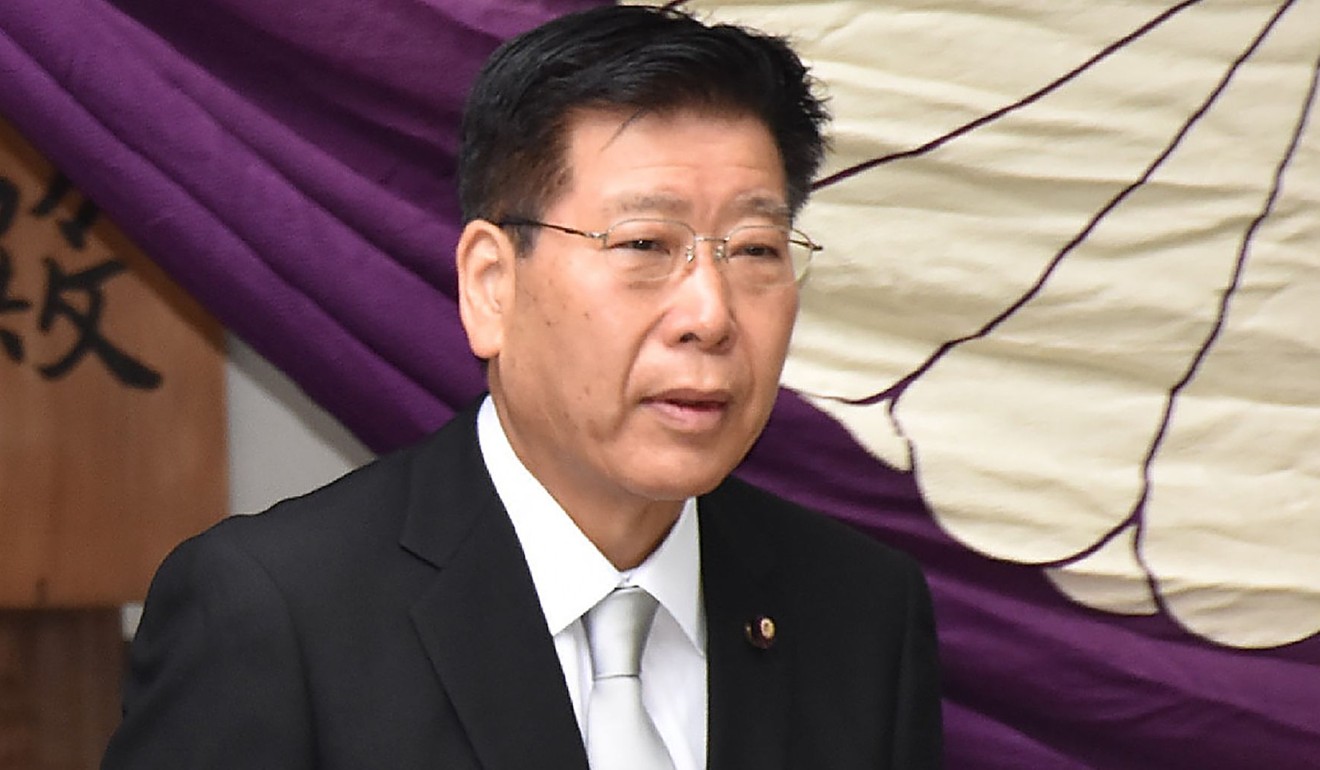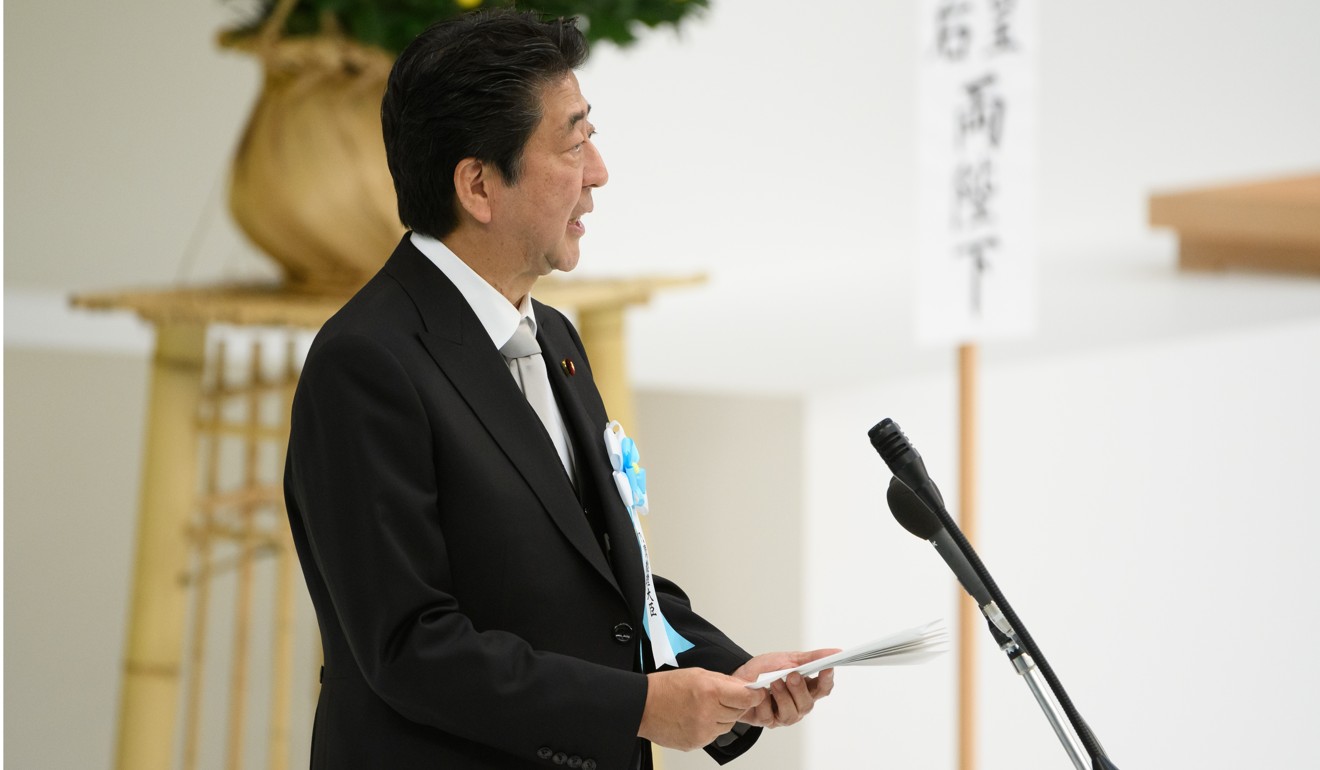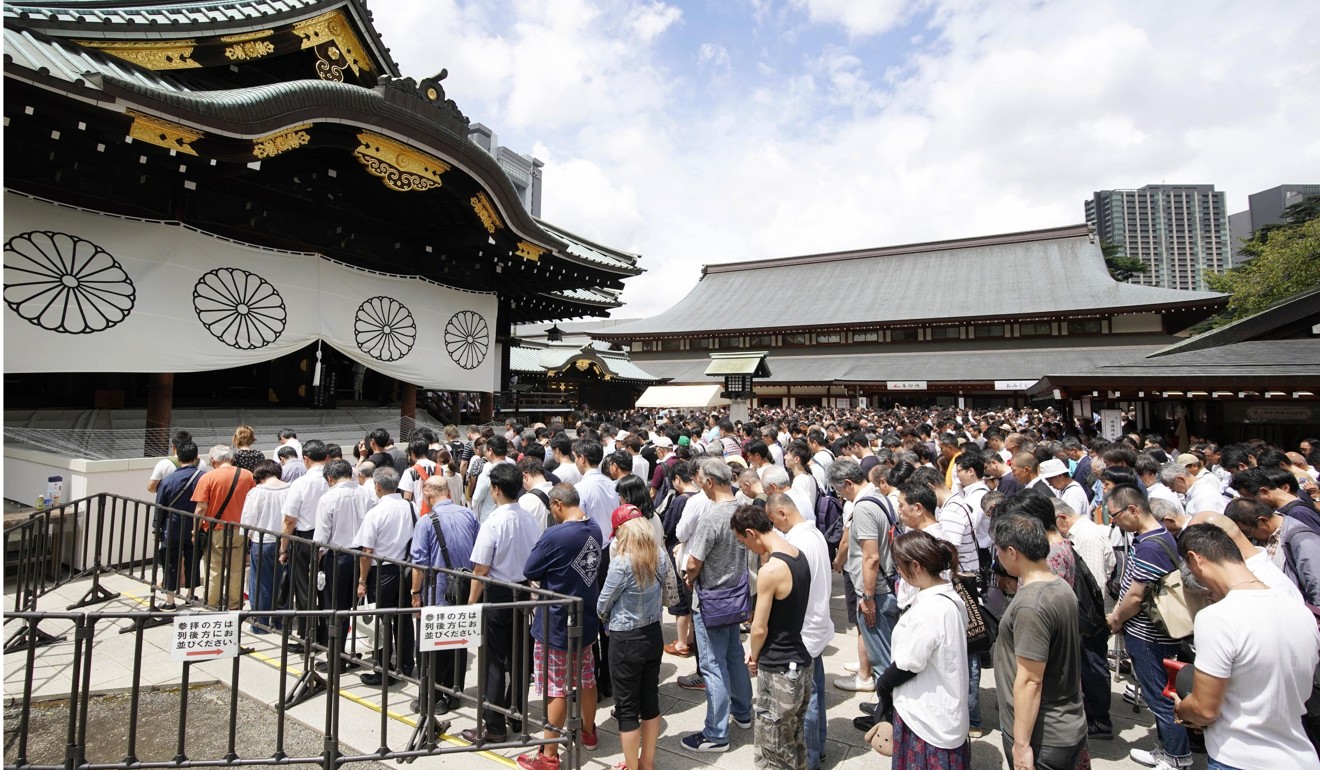
Japanese minister becomes first in two years to visit Tokyo’s controversial Yasukuni Shrine
- Cabinet member Seiichi Eto pays his respects to the nation’s war dead at site seen abroad as symbol of Japan’s past militarism
- The response was swift from neighbouring South Korea, which called on Tokyo to ‘show humble reflection’ on the past
Seiichi Eto was the first cabinet minister to visit Yasukuni since April 2017. He oversees issues related to Okinawa prefecture and the four southernmost Kuril Islands, which were seized by Russia in the closing days of World War Two but are claimed by Tokyo.
The next day, a cross-party group of about 100 Japanese lawmakers paid homage, more than during the shrine’s recent festivals last autumn and this spring. The group included lawmakers from the ruling Liberal Democratic Party, the Democratic Party for the People, and the Japan Innovation Party.

Eto is serving in his first cabinet position and is a member of the ultranationalist Nippon Kaigi organisation, whose aims are to revise the “national consciousness” surrounding the prosecution of Japan’s war criminals and to change the nation’s pacifist constitution implemented after the war. The group also promotes “patriotic education”.
Eto’s visit came immediately after the shrine accepted a ritual offering from Abe, although the prime minister has not paid his respects at the site in person since 2013.
A number of other members of the cabinet have declined to comment on whether they intended to visit the shrine during its current annual four-day autumn festival, which began on Thursday.
Jeff Kingston, director of Asian studies at the Tokyo campus of Temple University, suggested the long hiatus in ministerial visits was a nod to Beijing.
“Abe wanted to have better relations with China and called time-out on ministers’ visits to dial down the tensions that were spoiling Sino-Japanese relations a few years ago,” he said. “China and South Korea get upset when a senior minister goes to the shrine. Eto holds a fairly minor portfolio, but it is still no surprise that they have complained.”

A ministerial visit also sent a message to the political base at home of Abe’s Liberal Democratic Party, Kingston said, although the prime minister’s own ambitions to revise the constitution still appeared beyond his reach.
“He is threatening to dissolve the house for an election and is trying to coerce people into the debate on the constitution, but I don’t think the underlying fundamentals are in his favour,” Kingston said. “Changing the constitution just does not resonate sufficiently in society.”
The issue has been a topic of debate among Japanese conservatives because the constitution’s Article 9 bans the country from maintaining any “war potential”. Abe argues revisions are needed to formalise the legal status of Japan’s Self-Defence Forces.

China urged Japan to honour its commitment to reflect and face up to its history of aggression.
“We have lodged stern representations to the Japanese side,” foreign ministry spokesman Geng Shuang said. “Some Japanese politicians’ moves once again show their wrong attitude towards history.”
He also said Tokyo should take practical action to win the trust of its Asian neighbours.
The shrine honours the 2.4 million Japanese citizens who died in the nation’s wars. It has attracted controversy because it also enshrines the souls of 14 class A war criminals who were executed or given lengthy prison terms for their roles in Japan’s wars of aggression in the early decades of the last century.
Among those honoured are wartime prime minister Hideki Tojo, and Iwane Matsui, a general in the Imperial Japanese Army who commanded the expeditionary force sent to China in 1937 and who was executed for his part in the Nanking massacre, which took place in the city now called Nanjing.

